When Lionel Messi lifted the World Cup in Qatar, it was more than a trophy. It was the final piece of a story that stretched across decades. The missing jewel in a crown he had carried since boyhood.
The victory told only half the tale. The other half was his transformation. In the heat of the Middle East, Messi changed before our eyes.
The genius was never in doubt. But the character was different. For so long Messi had been the quiet artist, the boy who once changed clothes in the corridor to avoid the eyes of his Barcelona teammates. In Qatar, he became something else. Fierce. Vocal. Unapologetic.
Argentina’s goalkeeper Emiliano Martinez saw it clearly.
“This World Cup he was different. We are probably more aggressive than the national teams he’s played with before. So he’s probably becoming a little more like us. That bad boy.”
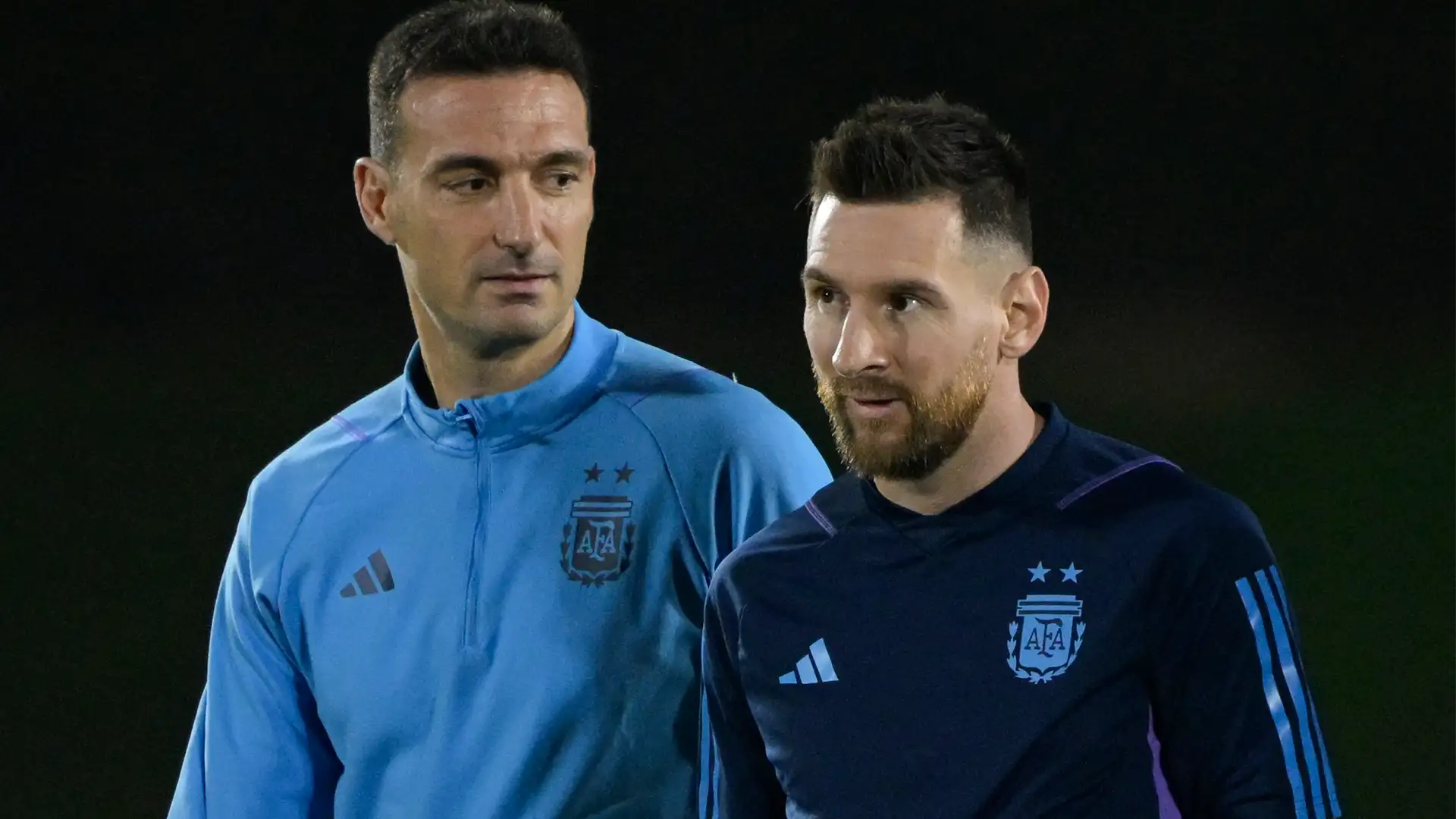
Photo Credit (Sky Sports)
The pact with Scaloni 🤝🇦🇷
Messi’s evolution began with Lionel Scaloni. Appointed in 2018 to near silence and scepticism, he was dismissed by many, even ridiculed by Maradona who said, “He is a great lad but he cannot even direct traffic.”
Scaloni did not arrive with headlines. He arrived with humility. That humility won Messi.
“The FA had a single objective,” said biographer Guillem Balagué. “To find a manager who could work with Messi and get the best out of him.”
Scaloni treated him as an equal. He listened, asked what would work, and built a team that embraced its captain instead of overwhelming him. As Martínez said, “You’re always going to have talented players, but it’s how you manage them. If you don’t know how to drive a Ferrari you will crash on every corner. Scaloni knows how to drive a Ferrari.”
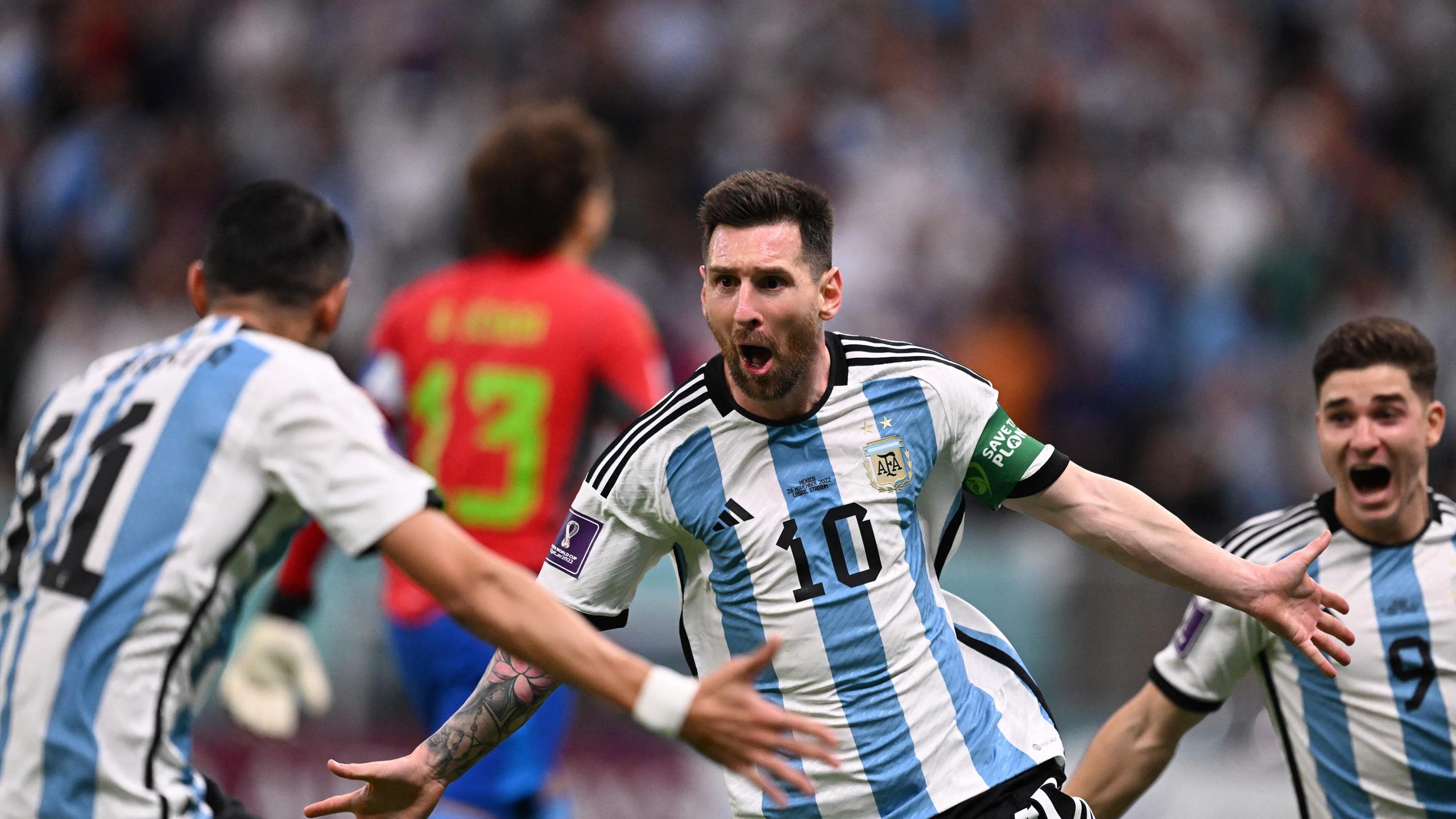
Photo Credit (Sky Sports)
A home in exile 🏠☕🍖
In Qatar, Argentina built a small piece of Rosario. Mate tea on every table. The card game Truco at every gathering. Asados cooked with 900 kilos of imported Argentine beef.
It was a home within a tournament, and it placed Messi in the warmth of his roots. Journalist Marcela Mora y Araujo put it best: “They transported him back to the childhood he left behind at thirteen.”
And when Messi felt at home, the fire inside him finally burned through.The spark against the Netherlands ⚡👂🟠
The quarter-final lit the flame for all to see. Louis van Gaal questioned Messi’s work rate. Messi answered on the pitch with a cupped-ear celebration, a gesture borrowed from his idol Juan Román Riquelme. Then, after the match, he let fly at Dutch striker Wout Weghorst during a live interview. “Qué mirás, bobo?” What are you looking at, fool?
It was raw, unfiltered, and deeply Argentine. Not a copy of Maradona, but the voice of Rosario itself. As Balagué put it, “It was the Rosario in him that appeared in front of our eyes.”
It was raw, unfiltered, and deeply Argentine. Not a copy of Maradona, but the voice of Rosario itself. As Balagué put it, “It was the Rosario in him that appeared in front of our eyes.”
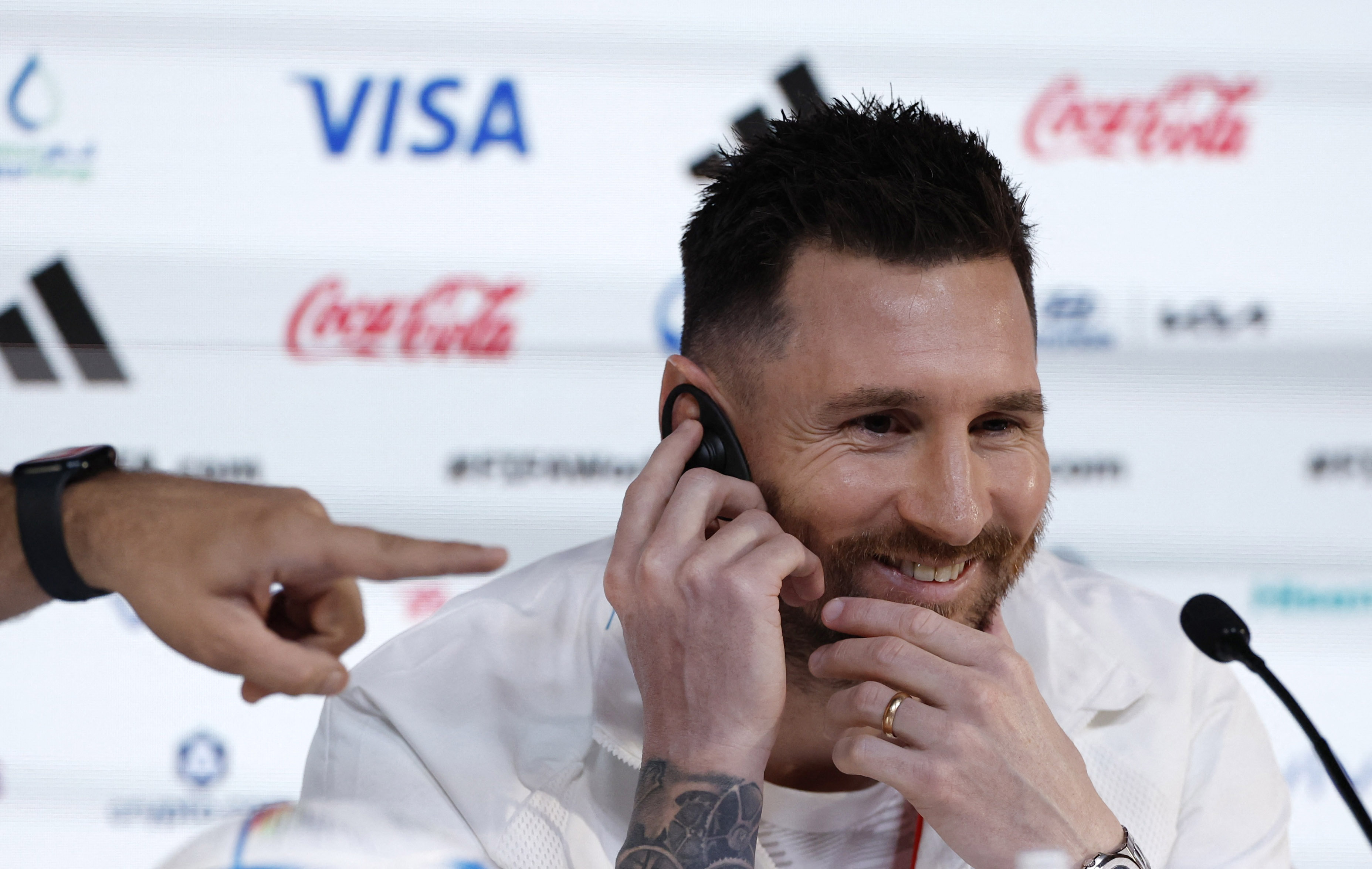
Photo Credit (Sky Sports)
Finding his voice 🎙️🗣️💪
Perhaps the most striking change was not his goals, but his words.
After Argentina’s shock defeat to Saudi Arabia, Messi stood before the microphones and repeated a single message: “Believe in us. We will not let you down.”
It was a role he once avoided, the task of carrying a nation’s voice. In Qatar, he embraced it. Pablo Zabaleta said, “In hard situations he was the only one talking. He didn’t want to send the younger players out there. That was great to see.”
For the first time, Messi was not only leading with his feet. He was leading with his voice.
After Argentina’s shock defeat to Saudi Arabia, Messi stood before the microphones and repeated a single message: “Believe in us. We will not let you down.”
It was a role he once avoided, the task of carrying a nation’s voice. In Qatar, he embraced it. Pablo Zabaleta said, “In hard situations he was the only one talking. He didn’t want to send the younger players out there. That was great to see.”
For the first time, Messi was not only leading with his feet. He was leading with his voice.
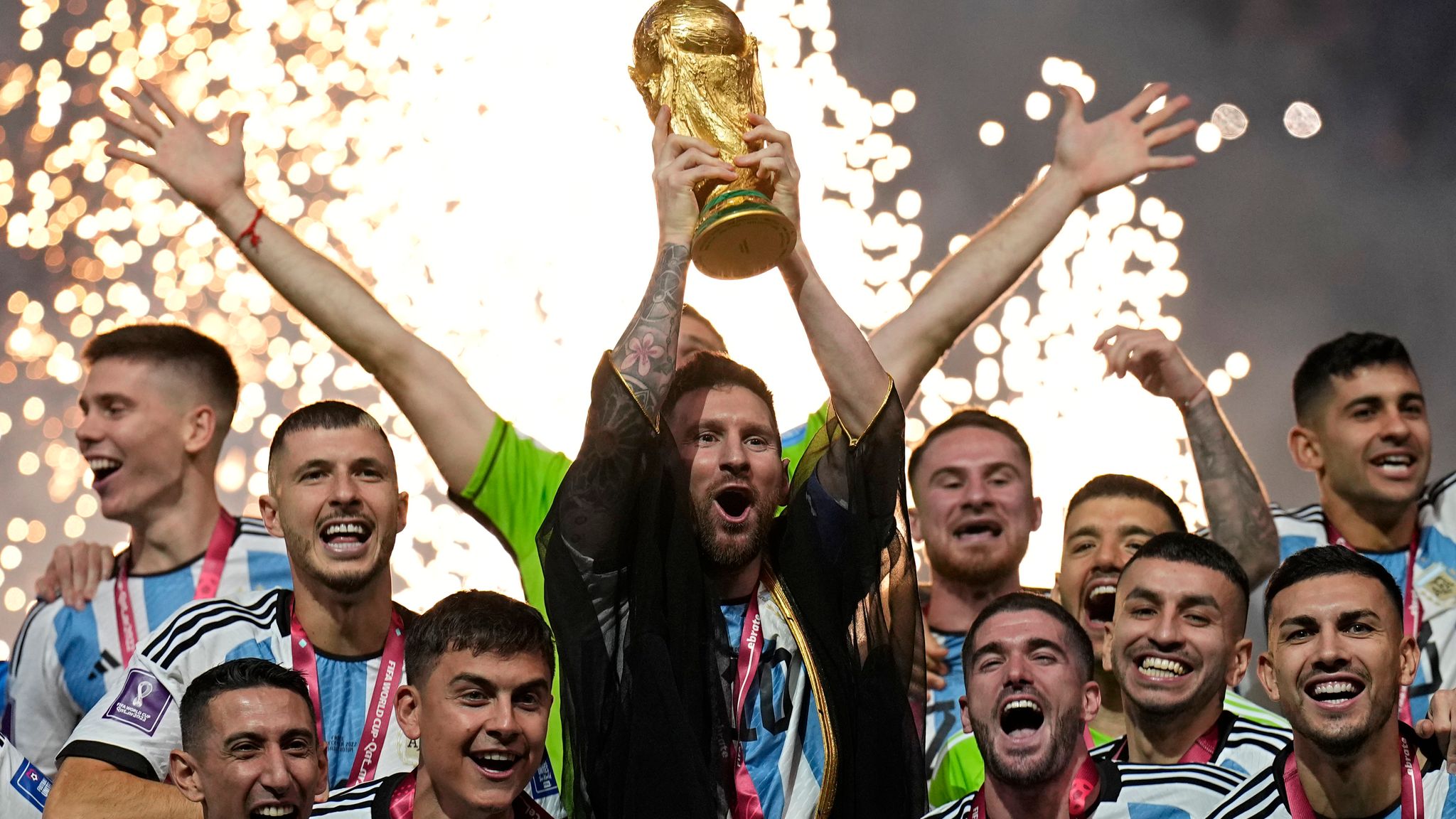
Photo Credit ( Sky Sports )
A captain of fire and calm 🔥😌🫡
What emerged in Qatar was not Messi turning into Maradona. It was Messi becoming himself.
“He showed and transmitted an acceptance of himself,” Mora y Araujo said. “For many years he was asked to be more Argentine, more passionate, more like Maradona. In Qatar he wasn’t trying. He just was.”
There was fire in his eyes when he confronted rivals. There was calm in his words when he lifted his teammates. And beneath it all there was the weight of history pressing on his shoulders.
“He must have felt the breath of history on him,” said Jonathan Wilson. “He must have felt time closing in.”
That mixture of urgency and serenity defined his tournament. For a month in Qatar he smiled, he snarled, he inspired.
He carried Argentina through fear and into glory. When it was all over, Lionel Messi stood at the summit. The shy boy from Rosario, once too timid to enter a dressing room, had become the fearless captain of a nation.
Martínez said it simply: “After this World Cup, he completed football.”
“He showed and transmitted an acceptance of himself,” Mora y Araujo said. “For many years he was asked to be more Argentine, more passionate, more like Maradona. In Qatar he wasn’t trying. He just was.”
There was fire in his eyes when he confronted rivals. There was calm in his words when he lifted his teammates. And beneath it all there was the weight of history pressing on his shoulders.
“He must have felt the breath of history on him,” said Jonathan Wilson. “He must have felt time closing in.”
That mixture of urgency and serenity defined his tournament. For a month in Qatar he smiled, he snarled, he inspired.
He carried Argentina through fear and into glory. When it was all over, Lionel Messi stood at the summit. The shy boy from Rosario, once too timid to enter a dressing room, had become the fearless captain of a nation.
Martínez said it simply: “After this World Cup, he completed football.”

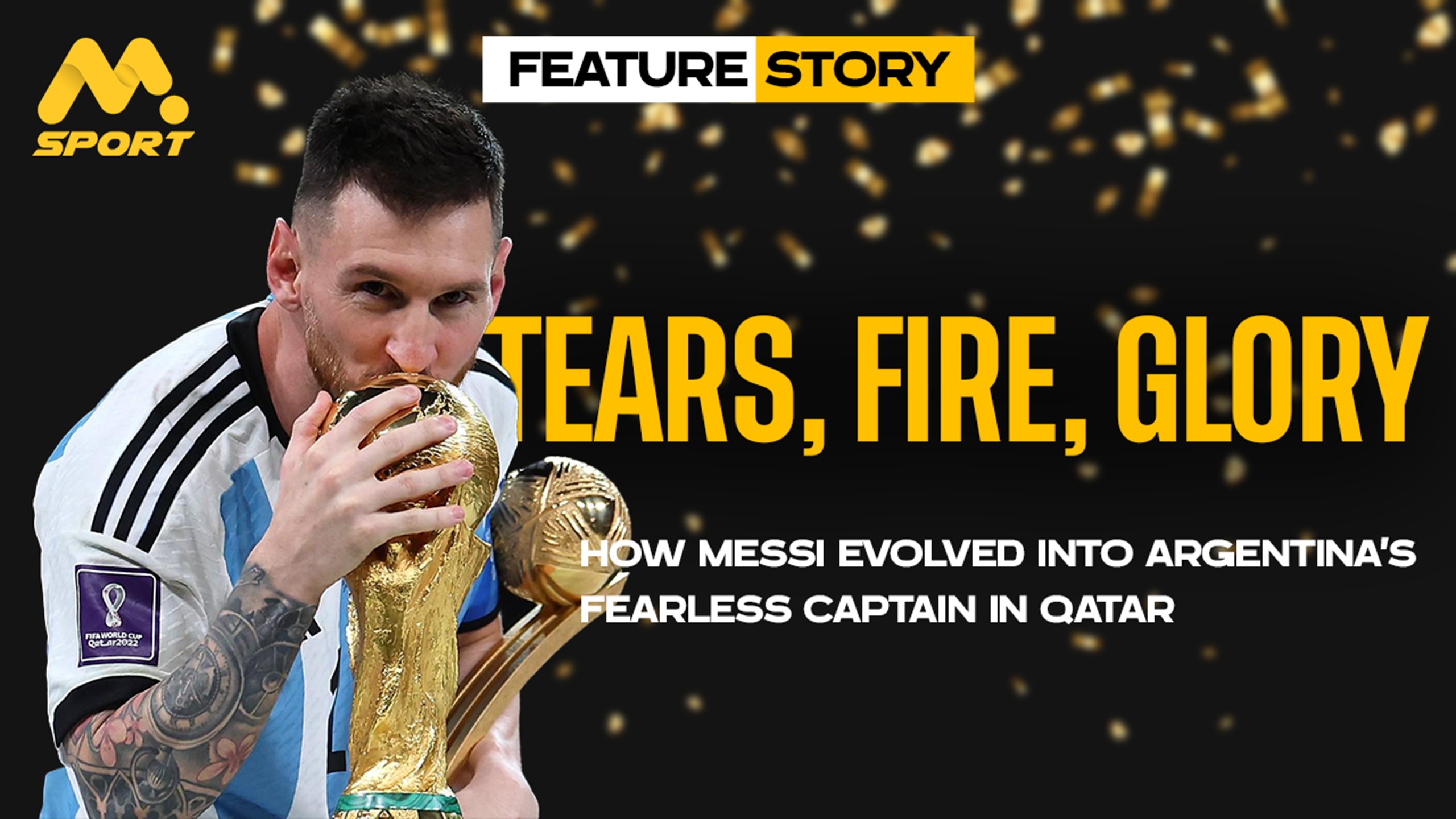

![Loved by Their Own, Hated Everywhere Else: Football's Top 10 Villains [Ranked]](/images/2021/Msport%20FS%20Villains.jpg)



![The Top 10 Richest Footballers of All Time [Ranked]](/images/2021/100.jpg)